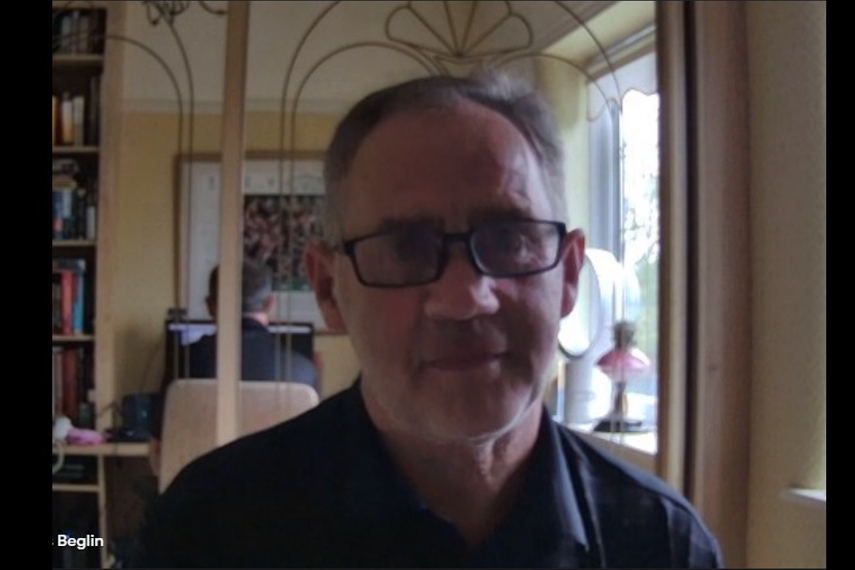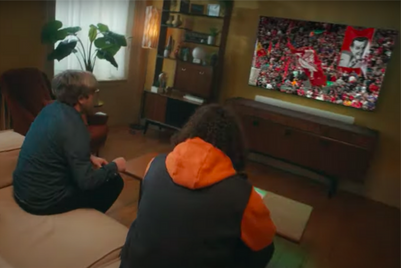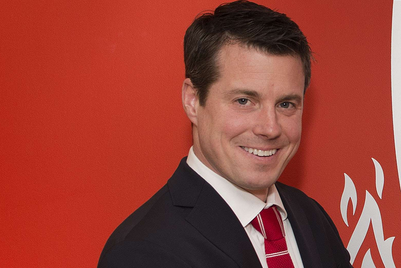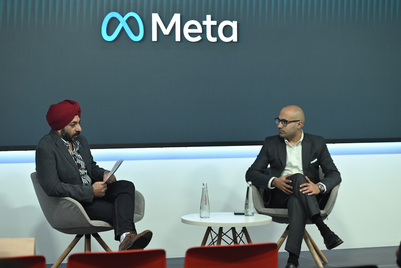Earlier this year,
English football's governing body decided to boycott social media for four days in an attempt to protest the discriminatory abuse received online by players. However, that wasn’t enough, as footballers continue getting racially abused and trolled on social media even today.
In a chat with Campaign India, former Liverpool defender Jim Beglin, who is now on the global commentary team of the Premier League, and a part of Sportskeeda’s newly appointed football pundits (which also consists of Fabrizio Romano, David James and Paul Merson), states what he believes social media networks can do to cut down on trolling and abuse.
He also discusses how the commercial aspect of football has grown immensely in the last three decades, the gaining popularity of esports, and more…
Edited excerpts:
You were a part of a very successful Liverpool team in the 80s. Were there many brands that came your way back then? Or do you believe that brands entered football more recently?
The phenomenon is more recent for sure. Money has come into the game more recently and has changed the entire model. The whole brand business has kicked in and that’s led to an extremely huge financial product.
In the 80s, I was one of the younger members of the teams, and there were a few senior pros who had some discussions with brands. However, the scale was nothing like it is right now.
I think one team that worked on this effectively, even in the 80s, was my team’s great rival – Manchester United. It was widely accepted that the club created the brand business and was more commercially invested. Liverpool FC, even though very effective on the pitch back then, was extremely slow in backing up success on the pitch in terms of brand associations.
Nowadays, every team is trying to form a brand. Once you’re a part of the Premier League, it’s a completely different world right now, financially.
As a commentator now, I have worked for various broadcasters over the world. Seeing the scale and magnitude of some games, especially, Liverpool vs. Manchester United, helps us see why there’s so much financial interest. The viewership numbers we get are tremendous. The first time I understood the scale of the game was as a player. I got into a spat with Mark Hughes, and the referee came to me after the game and told me he didn’t send me off because he wanted to protect the commercial aspect of the game. The game was soon after the Heysel disaster occurred, and football had gotten negative publicity.
Would you say that Manchester United’s early entry into the brand game helped Premier League become the most popular football league in the world?
Possibly. But I also believe that the Premier League has done a fabulous job in promoting the league that has taken it to such heights.
Player abuse on social media has been a massive problem over the last few years and the League looked to tackle it with a four-day boycott. Your Twitter bio states you offer 'no bias'. Is this because you were getting hate messages on social media? How do you believe this can be changed?
Yes, because of my roots with Liverpool FC, a lot of their fans from rival clubs tend to get nasty on social media. I have experienced the highs and lows of the medium.
The more serious question, however, is of racial abuse. Concerning tackling it, it's only my opinion and I'm no expert. I do feel that if one has an account on social media, one has to be accountable for the messages sent out. Plenty of social media accounts are accommodating trolls.
Accountability will help the process. It may not eradicate the abuse but will reduce it, for sure. Everyone who registers on social media has to do so with his or her name. If the person is then found guilty, suitable action has to be taken. Social media companies need to help control and curb racial abuse.
We do see some social media companies trying actively to lower the amount of abuse, but it might take a while. But the good news is that the process has begun.
Esports and gaming are growing immensely. You've been a part of the Pro Evolution Soccer Series as a commentator for the last ten years. How different is the experience of commentating for a game versus the live commentary experience?
It’s really enjoyable. The story of how I became a commentator on Pro Evolution Soccer (PES) is funny too. The offer came in and I wasn’t quite sure. Back then, my son was an avid gamer and played a lot of FIFA – a part of the EA stable and a PES rival – and he told me I must not miss the opportunity.
Doing it was another matter, entirely. You are stuck in a booth and every line you narrate is checked. There are millions of different trigger conditions that you must commentate on. A team could be losing by eight goals before halftime and I have to come up with some commentary. Those kinds of situations make you want to push your head against a brick wall.
Overall, though, it's a great experience. I was in Serbia in a hotel room once, and people recognised me as the voice of the game!
We all know that in the gaming circuit EA Sports’ FIFA is the big one. The former CEO of Liverpool FC –
Peter Moore – and who has also worked with EA Sports, once met me on a train and put me down stating how FIFA has a dominant market share. But PES has its cult following who has been playing the game for years now. I believe it is immensely popular among those fans.
Coming back to the question, I enjoy being a part of the game and I’m amazed I have been here for all these years!
Let’s talk about your role as a broadcast TV commentator. What kind of preparation does it require?
People believe that a commentator’s job is simple. I love watching sport on television and that helps me prepare. Once the broadcaster hands out the fixture I’m working on, I watch all the possible games I can in the lead up so that it helps me with my analysis. You have to prepare in detail and keep up to speed with what’s happening in the sport and this is quite time-consuming!
There was a time when you virtually checked into a country on social media and interacted with fans. You’d also said back then that you hadn't gotten a chance to watch Indian football so wouldn't want to comment on the Indian Super League (ISL). Has that changed now?
No, I still haven't. I love watching sport on TV and would love to watch the ISL, but in the UK, none of Sky Sports, BT or BBC air the games.
What would your advice to countries like India (that are in a development stage when it comes to football) be? Do you think formats such as the ISL are the only way to increase skill levels?
It's a good start. It's a tough question given that I don’t have access to it. I do know Robbie (Fowler) is a coach there.
Having said that, if there is a real commitment, and I assume that's the case, better things are in store for the country. If the right people are at the right place at the right time, good things will happen. If the talent is there, then the talent will be nurtured. If you have players with basic talents, then academies will help them develop.
You need to keep in mind that it's a long, slow process. The efforts being put in today could pay off a generation later. It happened with England too; there was a focus on the technical ability for years, and I think this generation is the one that is seeing the fruits.
Finally, have you been to India yet?
No, I haven’t. Peter (Drury, co-commentator) and I should tell the guys at PES to fly us down to India to do our next set of recordings for the latest edition of the game. I have enjoyed my stint with Sportskeeda too, and for all you know, they could be the reason for my first visit to the country.




.jpg&h=334&w=500&q=100&v=20250320&c=1)
.jpg&h=334&w=500&q=100&v=20250320&c=1)
.jpg&h=334&w=500&q=100&v=20250320&c=1)


.jpg&h=334&w=500&q=100&v=20250320&c=1)








.jpg&h=268&w=401&q=100&v=20250320&c=1)
.jpg&h=268&w=401&q=100&v=20250320&c=1)


